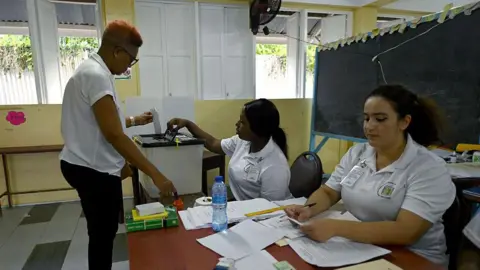As the tariffs imposed by former US President Donald Trump take effect, Southeast Asian nations, particularly Vietnam, are feeling the economic sting. The region, which has been thriving through substantial export success, is now grappling with punitive tariffs that threaten to derail years of growth. Vietnam and Cambodia are among the hardest hit, facing tariffs of 46% and 49%, respectively. Countries like Thailand and Indonesia are also feeling the pressure with their tariffs pegged at 36% and 32%.
This turn of events comes as a severe shock to an area that has historically depended on export-driven growth, with the US being a primary market. In Vietnam, for instance, exports to the US account for about 23% of its GDP, while for Cambodia, this number is even higher at 67%. These relationships have been vital for the ambitious economic development plans set forth by leaders in both countries.
Vietnam, now under the leadership of Communist Party Secretary-General To Lam, was banking on increasing its exports to the US as part of a broader goal to transform its economy into a knowledge-based and technology-driven entity by 2045. However, with these tariffs in place, these aspirations face a daunting challenge.
Thailand's economy, which is less reliant on US exports, is still faltering and has struggled with growth over the past decade. As the country seeks to revitalize its economy, the new tariffs add another layer of difficulty for the Thai government. Meanwhile, in Cambodia, the political situation could become increasingly precarious as the government tries to navigate the economic fallout from the tariffs, particularly in the garment sector, which employs hundreds of thousands and is now at risk.
Unlike China, which has retaliated against tariffs, Southeast Asian countries are opting for diplomacy, with leaders from Vietnam and Thailand seeking to negotiate tariff relief during visits to Washington. However, US officials, citing issues such as trade deficits and non-tariff barriers, appear unimpressed by these overtures.
The consequences of Trump's tariffs are already being felt across the region, leading to declines in stock markets and an uncertain future for economies that had relied on stable trade relationships with the US. With pressing economic growth targets and a domestic landscape fraught with challenges, countries like Vietnam and Cambodia now find themselves at a crossroads, struggling to balance their international relationships while ensuring economic stability at home.




















